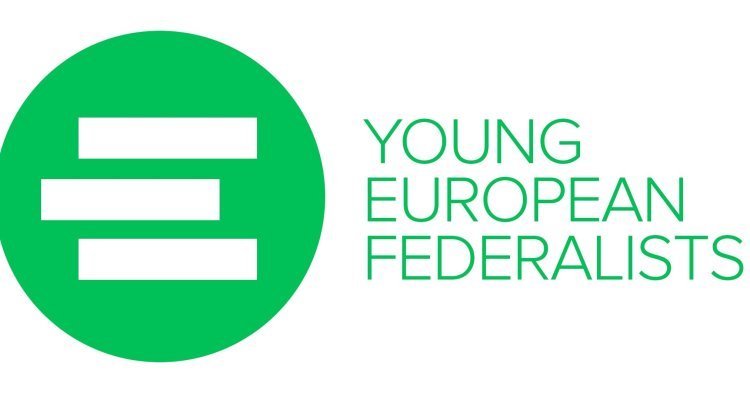Dear Chris, do you oppose euroscepticism openly in the UK?
Chris: If we’re asked directly, we do and we say why! But we also waste a lot of time saying why the UKIP (United Kingdom Independence Party) for instance is stupid without being asked.
Vincent: I do not think it is a waste of time to point out why UKIP or AfD are wrong. Sure, we will not convince their members. But if we let them proceed, people will listen. And more and more people will do so and gradually their views might become widely accepted.
So, do you think we need to be more active and attack them?
Vincent: We should point out why they are wrong! Because otherwise we’ll risk that people start to think they’re right.
Chris: I disagree. They need attention to grow. Take Ryanair for example. Their chairman said that any publicity is good publicity. So he said scandalous things just to get Ryanair into the news and it worked. Same with the eurosceptics: as long as nobody paid attention, they were little. But if you start to give them a platform, they’ll gain audience.
Vincent: A lot of people already vote for eurosceptic parties. So how could we possibly increase the attention they get? We are not giving them a stage at all. I hear this argument in JEF Germany as well, but let’s look at the figures: 4.7% for AfD recently, that’s more than 2 million voters. JEF Europe has about 15,000 members. So we don’t even come close. The media report on them anyway. Take the AfD: they were all over the news right from their founding event in April. I really can’t remember when JEF had an article in a national newspaper.
Chris: That is not what I am proposing. We should stay positive. We only defuse the negative opinions. If we are asked, we look responsible. We should only attack them when they attack us.
Which ways would you propose to go against eurosceptics?
Vincent: If, for instance, we pulled an action at their congress, we’d make it into the news. So, some would hear about us for the first time. We could be “the others”, the young generation that fights for a positive vision of Europe and people might think, “I agree with JEF” and join us.
Chris: It depends on what you want to do: Whether you want to fight them or you want to grow JEF. It probably is morally not very appropriate. Eurosceptic parties are mostly not only anti-EU but also anti-liberal on migration and gender issues or simply xenophobic. To counter these ideas we should address organisations that protect human rights or fight for minorities. They are way more credible and visible when attacking eurosceptics.
Vincent: Extreme views have always been around. The question is whether there’s a momentum to organise these views into a movement. They need something to unite, often something to unite against. Anyway, I think unfortunately JEF is too small to make a big difference. Thus, to advance our ideas it’s better to convince the pro-EU parties and their youth organisations of our ideas.
Do you think the eurosceptics are successful because they address feelings rather than the mind?
Chris: Yes and no. First of all, people are reasonable! But they make their decisions based on the evidence out there and how they feel about that. In a world of Eurosceptic news outlets and widespread pessimism, people’s reason and feelings are being moved against Europe. We use reasoned arguments all the time, the challenge is to make sure they’re publicly available but not all that we have. Emotion can be very useful in the current discussion. If an article is emotional it’s also persuasive. We as JEFers have not used emotion enough and we absolutely need to not only defend Europe with reason but project a positive vision with an appeal to emotion. Both, guts and reason, are important, we need both.
Vincent: In general, I agree. People often take decisions based on experience. So, feelings play a big role.
So are there ways to address the people in a persuasive way?
Chris: I don’t know how it works in Germany, but in YEM we organise debates between pro and anti Europeans around various aspects of European integration and the EU itself. We let the appeal and strength of the pro-European speakers render the Eurosceptic opponents impotent in front of an audience.
Vincent: Do the UKIP guys come?
Chris: Some do yes.
Vincent: I think that is quite brave.
Chris: I am not a fan of attacking them directly. We should take an exploratory approach to their arguments and dismantle them that way. We should respect their views like we would anybody else and then challenge them with questions. It is also important when organising such an event that you match the charisma of their candidates. Farage for example, is rhetorically appealing to the average person and so if he is to be placed in a debate, we would want someone who is not only smart, but at least as capable of charming an audience. It negates the effect of populism but also makes for a much more interesting event. So, if you organise a debate, match the charisma!
Vincent: So, set the stage and the audience will get the point all by themselves?
Chris: Yes, and it’s a multiplier effect. People go home and tell their friends what they learned and hopefully, the positive impression they got from the event. The Cambridge Union once invited Farage and he declined. Knowing the Union, they’d have matched him up with a very strong pro-European, a type of person Farage has rarely had to face. Similarly, the university held a debate on “Should Britain leave the EU?” The vote at the end was a vast majority choosing to stay in the Union, and this was spoken about across the university.
Perhaps, we should try that more often. So we are all looking forward to a tough and interesting pre-election time. Thank you for the interview.



Follow the comments: |
|
